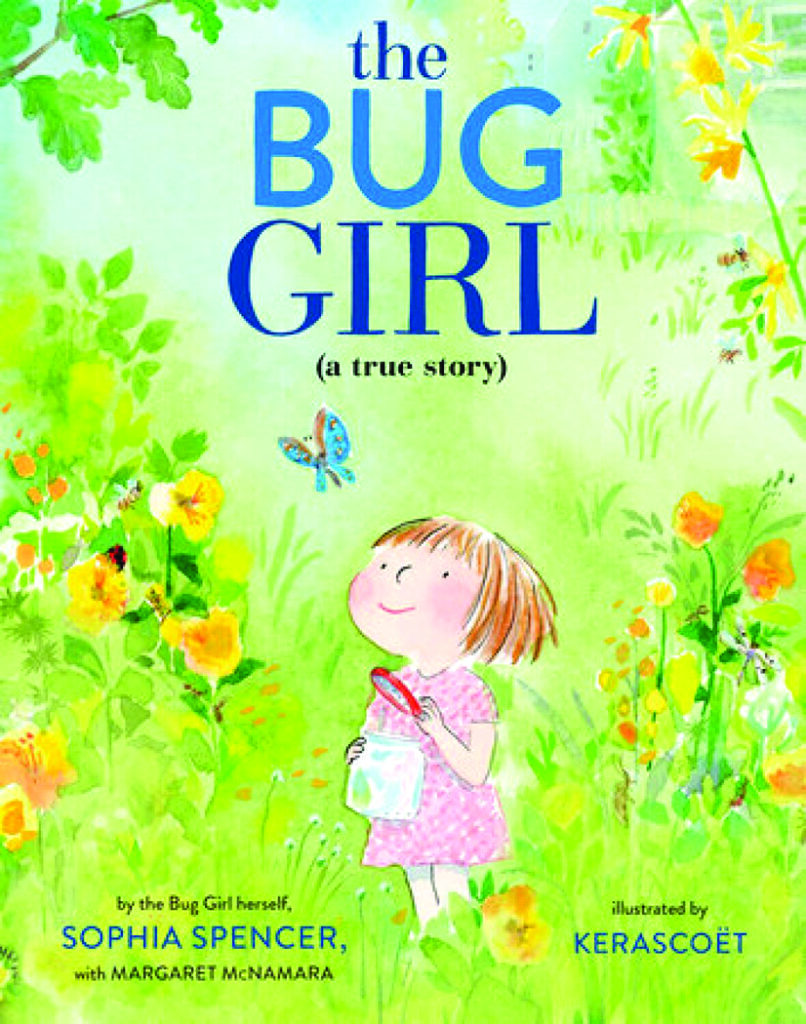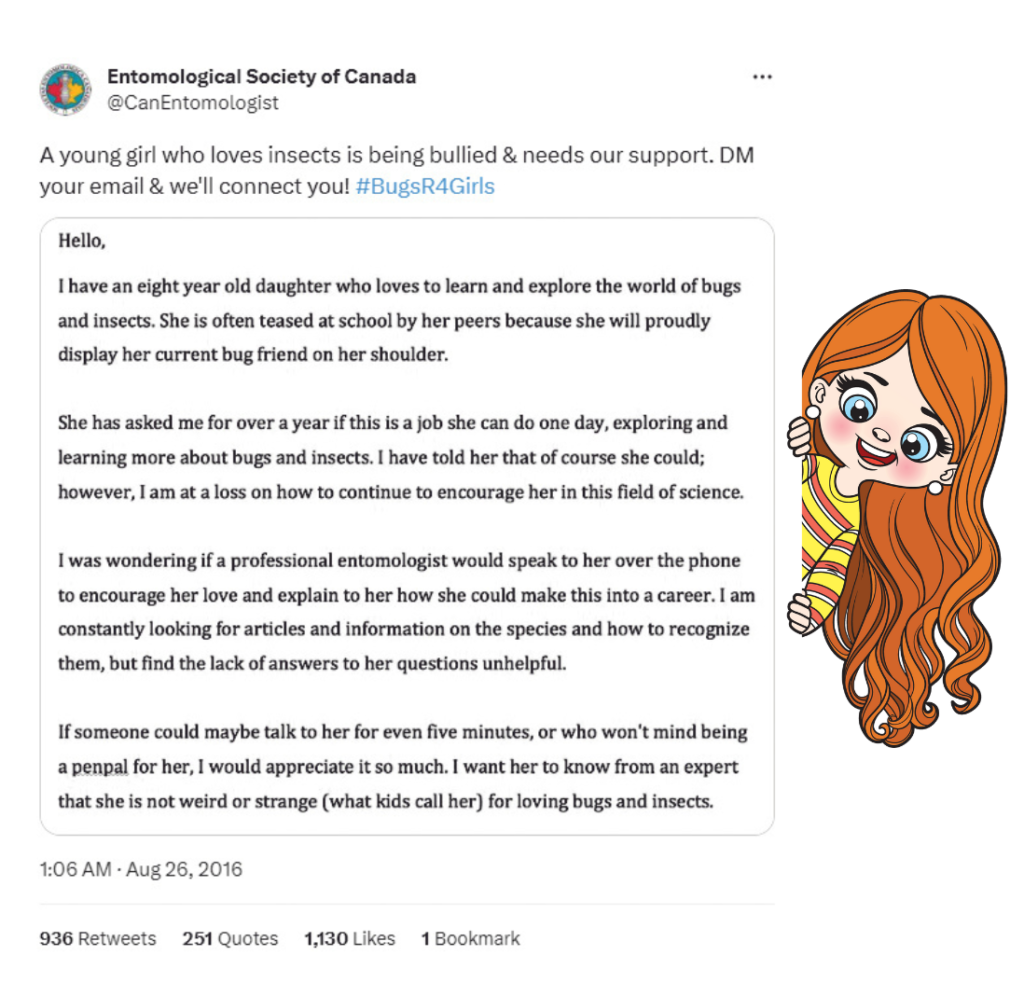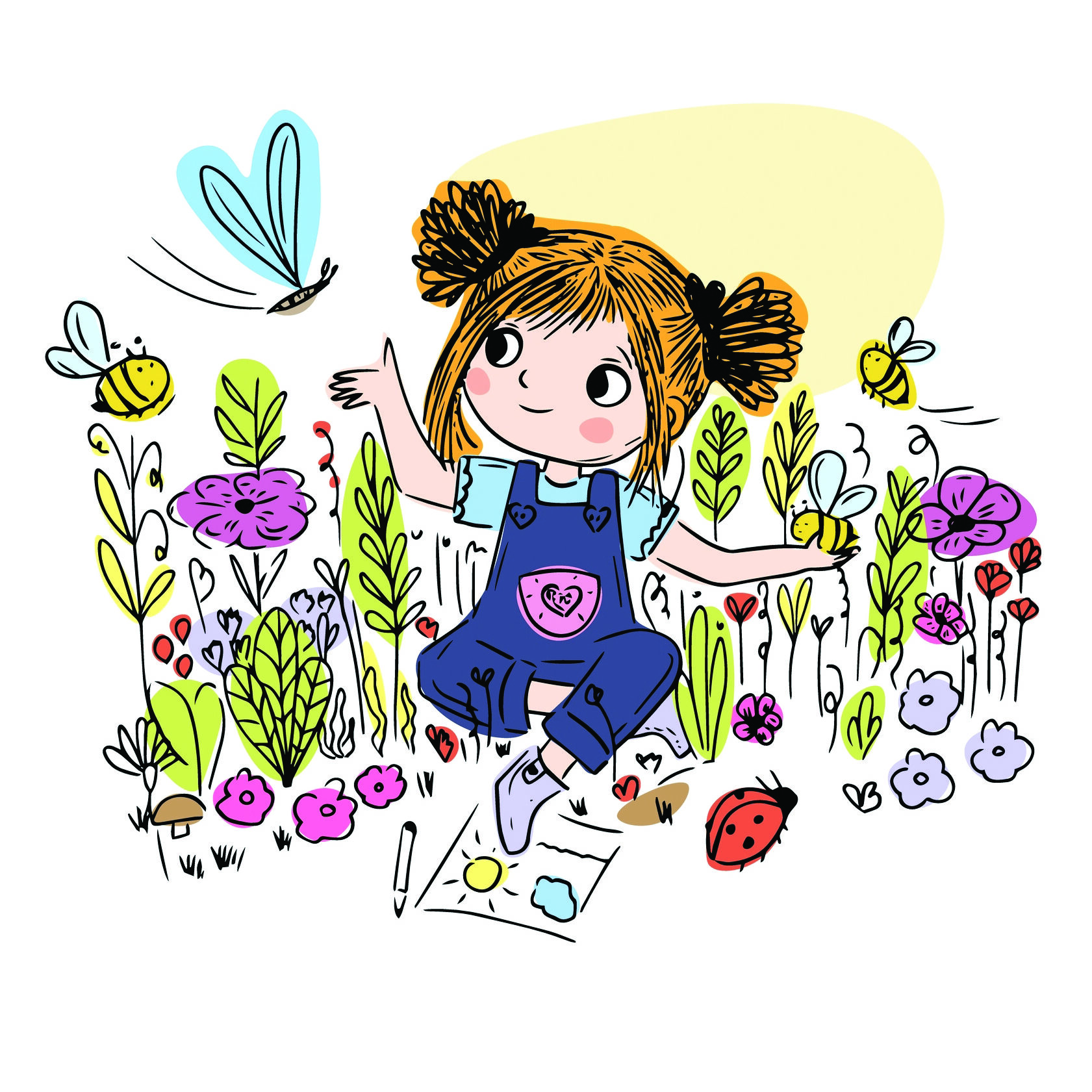In August 2016, the Entomological Society of Canada tweeted a screenshot of a letter sent by a mother with a very specific concern: Her daughter was being teased at school for her love of bugs. This letter, which requested for a possible penpal for the young insect-loving girl, sparked an outpouring of support from bug fans and women scientists across the internet.
Then seven-year-old Sophia Spencer not only found countless new friends who shared her passion for bugs, but started a movement in the process: #BugsR4Girls. Now eleven years old, Sophia has since co-authored a scientific paper and written a picture book about her love of bugs.

(Book cover from Goodreads)
IT STARTED WITH BUTTERFLIES
According to Sophia’s 2020 picture book The Bug Girl: A True Story, she was only two years old when she fell in love with Butterflies in a conservancy. Over the years, she began to show an interest in Ants, Fireflies, Snails, Worms, and even Grasshoppers. She understood, however, that not a lot of children shared her enthusiasm for the little critters she was so fascinated with.
In a 2016 article written by Geoffrey Vendeville for The Toronto Star, Nicole Spencer, Sophia’s mom, is quoted as saying, “Nobody would go near her.” Sophia had been carrying around Caterpillars at school, making her a target for bullies disgusted by bugs.
Nicole sent an email to the Entomological Society of Canada for help finding a bug and insect expert who could encourage Sophia’s hobby and possible future profession. She wrote, “I want her to know from an expert that she is not weird or strange (what kids call her) for loving bugs and insects.”
That’s how Sophia met Morgan Jackson, then a PhD Entomology student at the University of Guelph’s School of Environmental Sciences.
BUG-LOVERS GETTING PUBLISHED
At the time Nicole’s letter went viral online, Morgan was a social media volunteer for the Entomological Society of Canada. The hashtag #BugsR4Girls on Twitter became the best platform to meet other bug-loving girls and gain inspiration from female entomologists, and this became the topic of Morgan and Sophia’s academic article, “Engaging for a Good Cause: Sophia’s Story and Why #BugsR4Girls.”
Published in the Annals of the Entomological Society of America in 2017, the journal article analyzes the global support Sophia received after her mom’s letter went viral and what that social media engagement could mean for women in science and the field of entomology. Sophia was credited as co-author of the paper because of her very special contribution to the article
In the section “Outcomes and Benefits for Sophia, in Her Own Words,” Sophia wrote, “It felt good to have so many people support me, and it was cool to see other girls and grown-ups studying bugs. It made me feel like I could do it too, and I definitely, definitely, definitely want to study bugs when I grow up, probably grasshoppers.”
Since the article’s publication, Sophia has become an author in her own right, and Morgan has finished his PhD in insect taxonomy and phylogenetics.

The tweet by the Entomological Society of Canada that went viral
KEEPING THE LOVE ALIVE
In a 2020 interview published by CBC Radio, Sophia was asked why she loved bugs. She answered that bugs “have their own ecosystem, [l]ike they’ve made their own world, their own mini-universe.”
Though Sophia’s love of bugs has deepened, the only emotion most people have when confronted with bugs is disgust.
A 2021 study by Yuya Fukano and Masashi Soga titled “Why Do So Many Modern People Hate Insects? The Urbanization-Disgust Hypothesis,” published by the journal Science of the Total Environment, suggests that urbanization causes feelings of disgust in two ways: People are more disgusted by insects they often see indoors, and people lose their natural history knowledge about insects, leading to stronger feelings of disgust.
Fukano and Soga’s study, which was conducted across Japan, provides evidence of a link between psychology and the evolutionary avoidance of pathogens. More importantly, they conclude that disgust and negative perceptions of nature, including insects, due to urbanization can affect efforts for conservation and biodiversity.
Sophia and #BugsR4Girls, however, provide hope that perceptions can still change. Like she says in her academic article, “I think anything can be for anybody, including bugs.”





